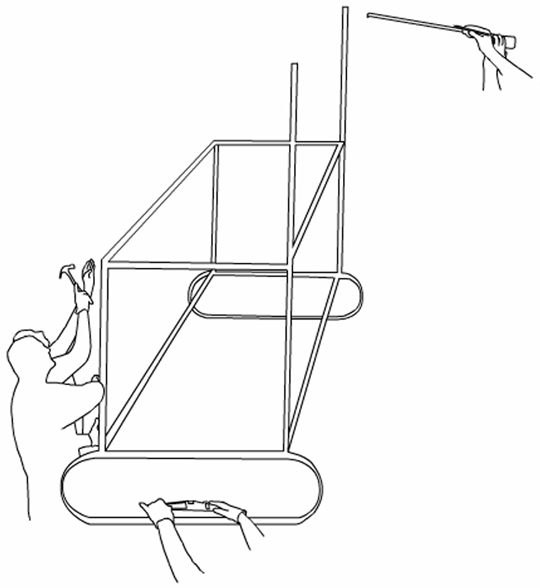This is an archive of the ArtCat Zine, 2007-2009. Please visit our new project, IDIOM.
Blackboxing at Artists Space
Blackboxing
Mariana Castillo Deball
5-8pm Wednesday 16 April 2008
3-6pm Friday 18 April 2008
30 min.
Artists Space - 38 Greene St, 3 Fl., New York NY
The industrialized world is increasingly constituted by a complex network of equipment, in the Heideggerean sense — and then again in a translated sense, or das Zeug. As new technologies are developed, or existing technologies move into new spheres of social space, one of the consequences is that such things also move towards transparency. The utopian ambition of early art video makers, for instance, resulted in motion pictures with a very conscious attitude to the emerging technologies those producers were using. Today, perhaps the video camera has gone the way of the hammer, to use one of Heidegger's favorite examples, the ultimate ready-to-hand — that is, we only notice it when its breaks. It is a similar spirit of simultaneous technological sophistication, social integration, and vanishing in which Mariana Castillo Deball presents her 2007 video Blackboxing at Artists Space tonight and then again on Friday. The eponymous concept "refers to the way scientific and technical work is made invisible by its own success." The popularity of the Apple computer company, to seize on one example that comes immediately to mind, is founded not on that company's refinement of the personal computer as an object but rather its erasure: the material scaling down of the computer into slimmer and over-designed models conceived to integrate elegantly with the furniture of the home or office, to become another piece of equipment. Castillo Deball's press release for the event continues:

When a machine runs efficiently, when a matter of fact is settled, one need focus only on its inputs and outputs, not on its internal complexity. As a result, the more science and technology succeed, the more obscure they become. "Blackboxing" is the process that makes the joint production of actors and artifacts entirely opaque. Castillo Deball is interested in devices, individuals, and events that evade this effect: unfinished stories, ambiguous characters, incomplete objects and so on. These elements typically belong to a process from which they were excluded, or their interests and links belong to different categories, making it impossible to fix them in a specific place. In her work, these fragmented pieces of imaginary machinery lead to chain reactions, as if each part might be trying to find a connection, a tiny place to settle for a while.
ZINE
HOME
TIPS / COMMENTS
CATEGORIES
CONTRIBUTORS
- Greg Afinogenov
- B. Blagojevic
- Adda Birnir
- Susannah Edelbaum
- Julie Fishkin
- Paddy Johnson
- Jessica Loudis
- Christopher Reiger
- Andrew Robinson
- Peter J. Russo
- Blythe Sheldon
- S.C.Squibb
- Hrag Vartanian
